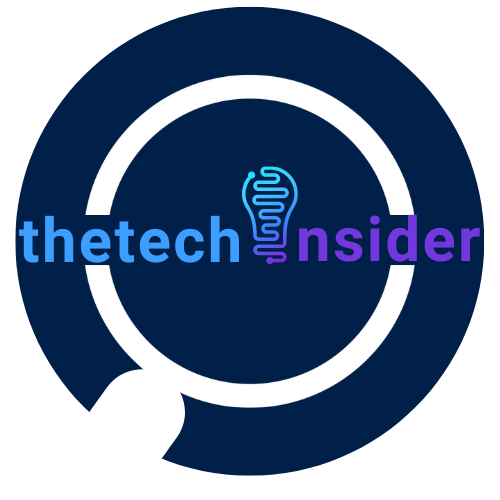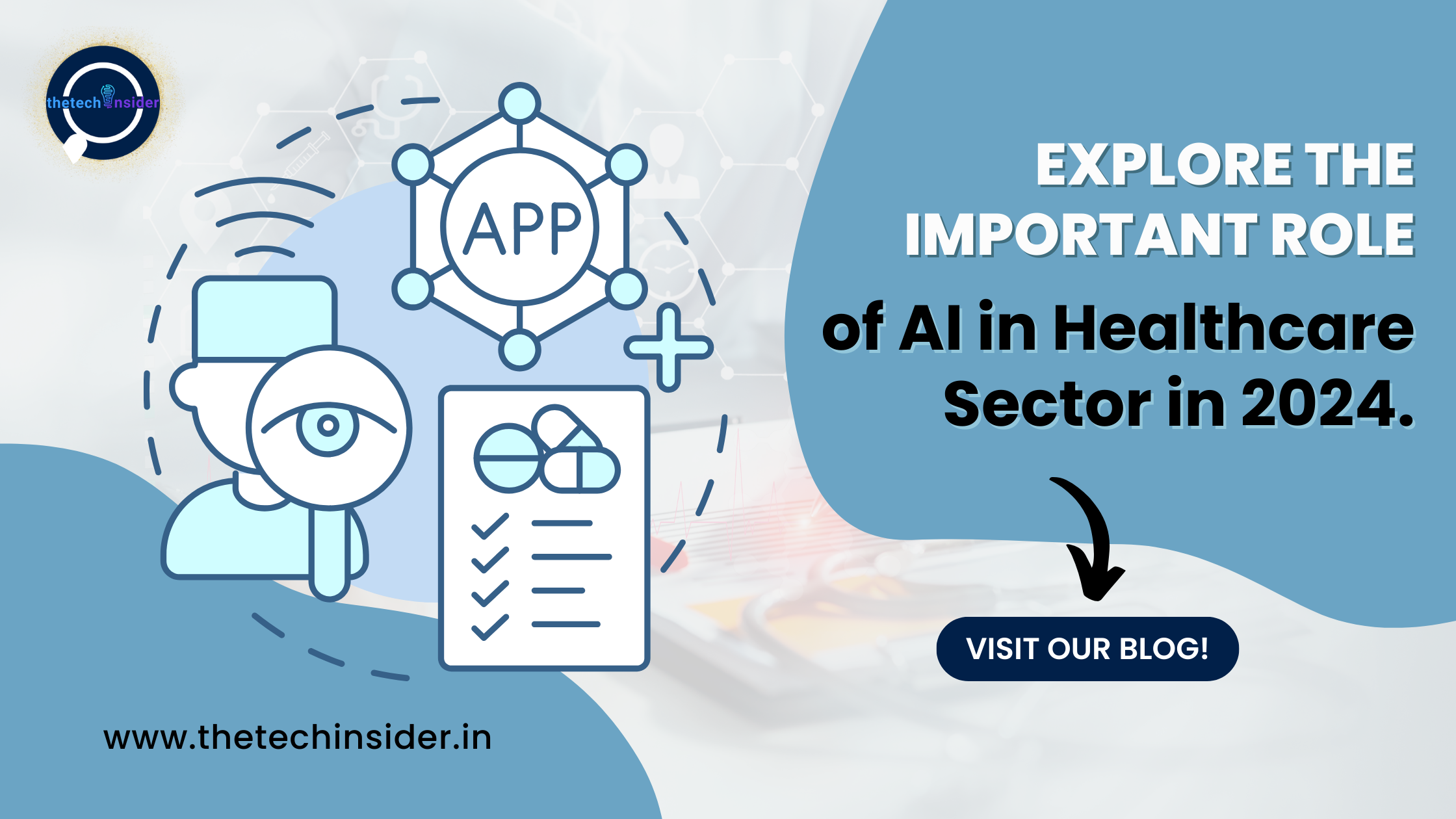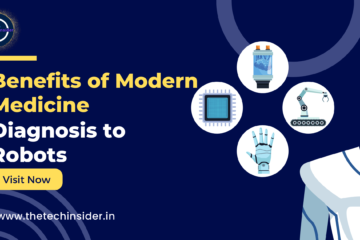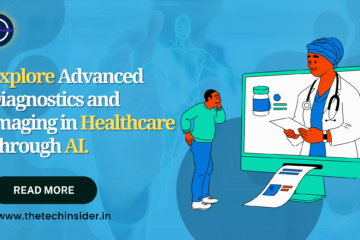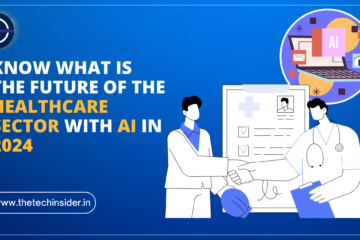Healthcare is at the forefront of integrating artificial intelligence (AI), which has emerged as a disruptive force across several industries.
AI in healthcare has a broad and bright future in healthcare, transforming patient care, diagnosis, treatment, and overall healthcare administration.
Cutting-edge technologies like artificial intelligence (AI) and machine learning are revolutionizing various industries, with a notable impact on healthcare—a sector that makes up 11% of the global GDP, amounting to approximately $9 trillion annually.

By introducing AI to the healthcare industry, there is a possibility that we can increase the rate of people recovering from lethal diseases, notice the symptoms of diseases in their early stages, speed up the recovery process, or make sure that no infection happens in the infected area after being treated.
AI is becoming increasingly adept at replicating human capabilities but with enhanced efficiency, speed, and cost-effectiveness. The potential applications of both AI and robotics in healthcare are extensive, mirroring their integration into our daily lives.
In 2024, we’ll see this technology move from experimenting and trial to real-world use cases, especially in areas that reduce administrative burdens, help clinicians easily find information, assist healthcare call center agents, and ultimately help organizations run more efficiently.
Of course, in 2024, we’ll also continue to see gen AI experimentation for use cases that require more testing and development, like assimilating information from diverse sources such as medical images, textual clinical reports, and voice. Ultimately, this technology will drive a new understanding of health and healthcare.
Table of Contents
AI In Healthcare: How can artificial intelligence benefit healthcare?
According to Statista, the artificial intelligence (AI) healthcare market, valued at $11 billion in 2021, is projected to be worth $187 billion in 2030. That massive increase means we will likely continue to see considerable changes in how medical providers, hospitals, pharmaceutical and biotechnology companies, and others in the healthcare industry operate.
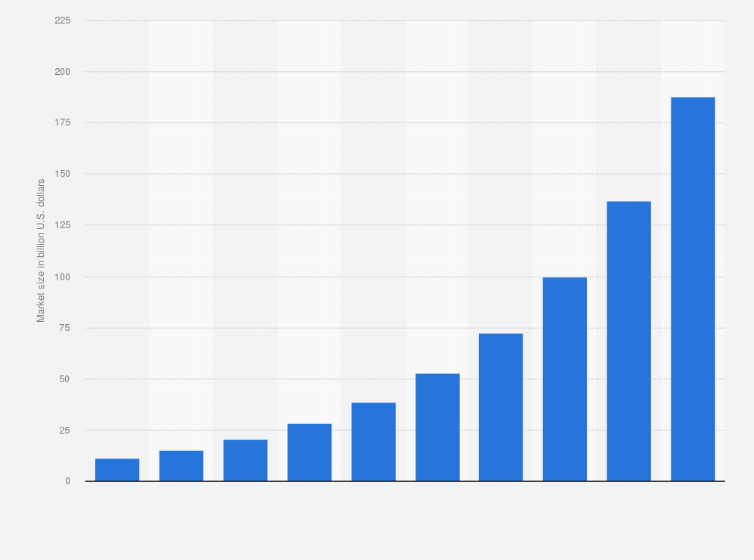
Better machine learning (ML) algorithms, more access to data, cheaper hardware, and the availability of 5G have contributed to the increasing application of AI in the healthcare industry, accelerating the pace of change.
AI and ML technologies can sift through enormous volumes of health data—from health records and clinical studies to genetic information—and analyze it much faster than humans.
From patient self-service to chatbots, computer-aided detection (CAD) systems for diagnosis, and image data analysis to identify candidate molecules in drug discovery, AI is already at work increasing convenience and efficiency, reducing costs and errors, and generally making it easier for more patients to receive the health care they need.
While NLP and ML are already being used in health care, they will become increasingly important for their potential to:
- Improve provider and clinician productivity and quality of care
- Enhance patient engagement in their care and streamline patient access to care
- Accelerate the speed and reduce the cost of developing new pharmaceutical treatments
- Personalize medical treatments by leveraging analytics to mine significant, previously untapped stores of non-codified clinical data
AI has the potential to improve the healthcare user experience
In an era marked by unprecedented advancements in technology, the intersection of artificial intelligence (AI) and healthcare holds tremendous promise for revolutionizing the patient experience.
AI’s transformative capabilities offer a pathway to enhancing healthcare delivery, streamlining processes, and personalizing care like never before. As AI technologies continue to evolve, the potential to improve the healthcare user experience becomes increasingly tangible.
- Personalized Medicine: AI can analyze vast amounts of patient data, including genetic information, medical history, and lifestyle factors, to tailor treatment plans and interventions to individual patients. By considering each patient’s unique characteristics and needs, personalized medicine can lead to more effective treatments and better health outcomes.
- Predictive Analytics: AI algorithms can analyze patient data to identify patterns and trends that may indicate potential health risks or the onset of certain conditions. By leveraging predictive analytics, healthcare providers can intervene early, implement preventive measures, and provide proactive care, ultimately reducing the likelihood of adverse health events and improving patient well-being.
- Improved Diagnostics: AI-powered diagnostic tools, such as image recognition algorithms and natural language processing systems, can assist healthcare professionals in accurately and efficiently diagnosing diseases and conditions. By enhancing diagnostic accuracy and speed, AI technologies can enable earlier detection of illnesses, facilitate timely treatment decisions, and enhance patient safety.
- Virtual Health Assistants: AI-driven virtual health assistants and chatbots can offer patients convenient access to healthcare information, assistance, and support anytime, anywhere. These virtual assistants can help patients schedule appointments, refill prescriptions, obtain medical advice, and navigate the healthcare system, thereby improving patient engagement, satisfaction, and adherence to treatment plans.
- Remote Monitoring: AI-enabled devices and sensors can remotely monitor patients’ vital signs, health metrics, and adherence to treatment regimens outside traditional healthcare settings. By collecting real-time data and alerting healthcare providers to potential issues or changes in patients’ health status, remote monitoring technologies can enable early intervention, reduce the need for hospitalizations and emergency room visits, and empower patients to take a more active role in managing their health.
A recent study found that 83% of patients report poor communication as the worst part of their experience, demonstrating a strong need for clearer communication between patients and providers. AI technologies like natural language processing (NLP), predictive analytics, and speech recognition could help healthcare providers have more effective communication with patients.
AI could be used to increase efficiency in healthcare diagnoses
According to Harvard’s School of Public Health, although it’s early days for this use, using AI to make diagnoses may reduce treatment costs by up to 50% and improve health outcomes by 40%.
One use case example is out of the University of Hawaii, where a research team found that deploying deep learning AI technology can improve breast cancer risk prediction. More research is needed, but the lead researcher pointed out that an AI algorithm can be trained on a much larger set of images than a radiologist—as many as a million or more radiology images. Also, that algorithm can be replicated at no cost except for hardware.
An MIT group developed an ML algorithm to determine when a human expert is needed. In some instances, such as identifying cardiomegaly in chest X-rays, they found that a hybrid human-AI model produced the best results.
AI governance in healthcare
“AI governance is necessary, especially for clinical applications of the technology,” said Laura Craft, VP Analyst at Gartner. “However, because new AI techniques are largely new territory for most, there is a lack of common rules, processes, and guidelines for eager entrepreneurs to follow as they design their pilots.”
The World Health Organization (WHO) spent 18 months deliberating with leading experts in ethics, digital technology, law, and human rights and various Ministries of Health members to produce a report called Ethics & Governance of Artificial Intelligence for Health.
This report identifies ethical challenges to using AI in healthcare, identifies risks, and outlines six consensus principles to ensure AI works for the public’s benefit:
- Protecting autonomy
- Promoting human safety and well-being
- Ensuring transparency
- Fostering accountability
- Ensuring equity
- Promoting tools that are responsive and sustainable
The WHO report also provides recommendations that ensure governing AI for healthcare both maximizes the technology’s promise and holds healthcare workers accountable and responsive to the communities and people they work with.
Future and potential of AI in healthcare ecosystem
AI provides opportunities to help reduce human error, assist medical professionals and staff, and provide patient services 24/7. As AI tools continue to develop, there is potential to use AI even more in reading medical images, X-rays, and scans, diagnosing medical problems, and creating treatment plans.
The future and potential of AI in the healthcare ecosystem are vast and transformative. AI technologies are poised to revolutionize various aspects of healthcare delivery, including diagnostics, treatment planning, drug discovery, and patient care.
One of the most significant contributions of AI in healthcare is its ability to analyze vast amounts of medical data quickly and accurately. AI algorithms can sift through patient records, medical images, genomic data, and other sources of information to identify patterns, detect anomalies, and make predictions far more efficiently than human clinicians.
AI applications will continue to help streamline various tasks, from answering phones to analyzing population health trends (and, likely, applications yet to be considered).
For instance, future AI tools may automate or augment more of the work of clinicians and staff members. That will free up humans to spend more time on more effective and compassionate face-to-face professional care.
Challenges and Considerations
While the future of AI in healthcare is bright, there are challenges and considerations to address:
- Data Privacy and Security: Protecting patient data from breaches and ensuring compliance with regulations like HIPAA is paramount.
- Bias and Fairness: AI algorithms must be trained on diverse datasets to avoid bias in decision-making, which can disproportionately affect certain demographics.
- Interoperability: Ensuring that AI systems seamlessly integrate with existing healthcare infrastructure is crucial for widespread adoption.
- Ethical Concerns: AI should be used ethically, with transparency in decision-making processes and a focus on patient welfare.
Conclusion
The future of AI in healthcare holds immense promise for revolutionizing patient care, from more accurate diagnoses to personalized treatment plans and efficient healthcare operations. However, addressing challenges such as data privacy, bias, and ethical concerns is crucial to ensure that AI enhances healthcare while prioritizing patient well-being.
In 2024, AI has reshaped healthcare, revolutionizing patient care, diagnostics, and cost efficiency. Leveraging AI algorithms, healthcare providers access real-time insights and optimize treatment plans. However, challenges such as data privacy and algorithm bias demand careful regulation. Despite this, AI offers unprecedented potential to improve outcomes and personalize medicine, transforming the healthcare sector for the better.
Discover the latest in tech innovations and trends with The Techinsider blog channel. Stay ahead in the dynamic world of technology with concise insights, expert analysis, and breaking news. Join us as we explore the future of tech together!
Also, if you are searching for a perfect career in the year 2024 then make sure to check out this blog by The Techinsider regarding The Top 5 Technology Trends and Technological Innovations Unveiling in 2024. These 5 careers have a huge upside and low-risk factors.
